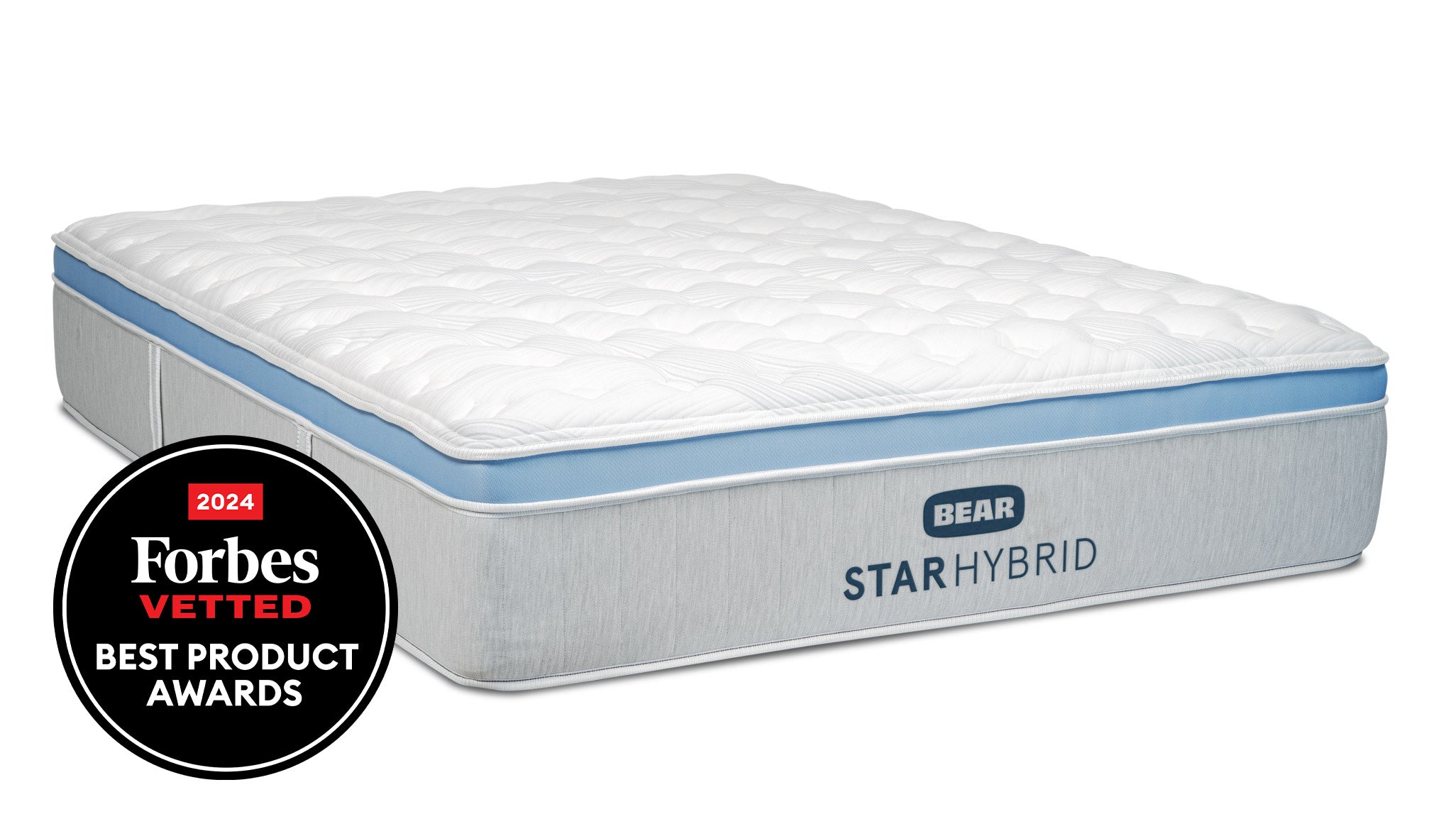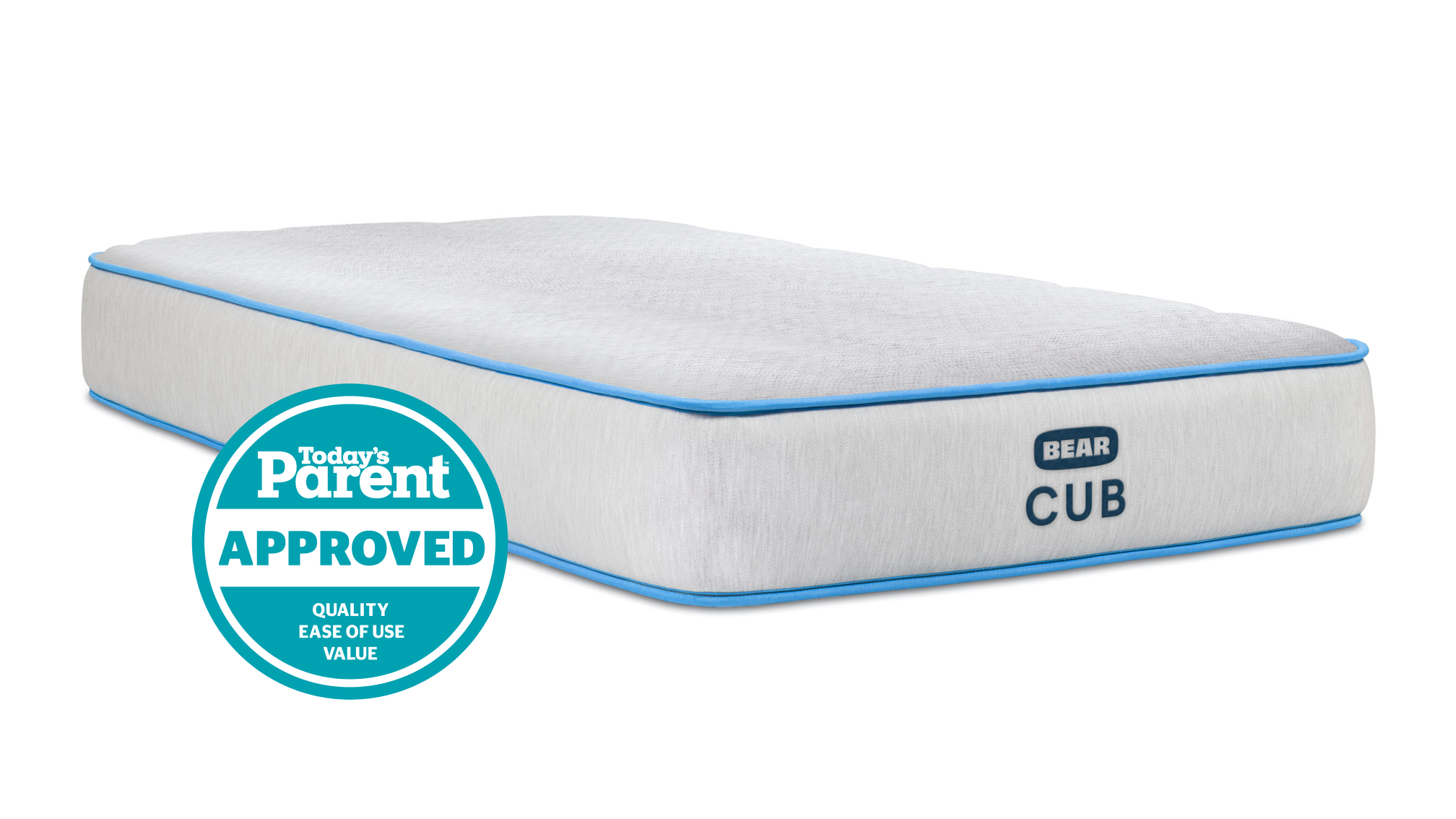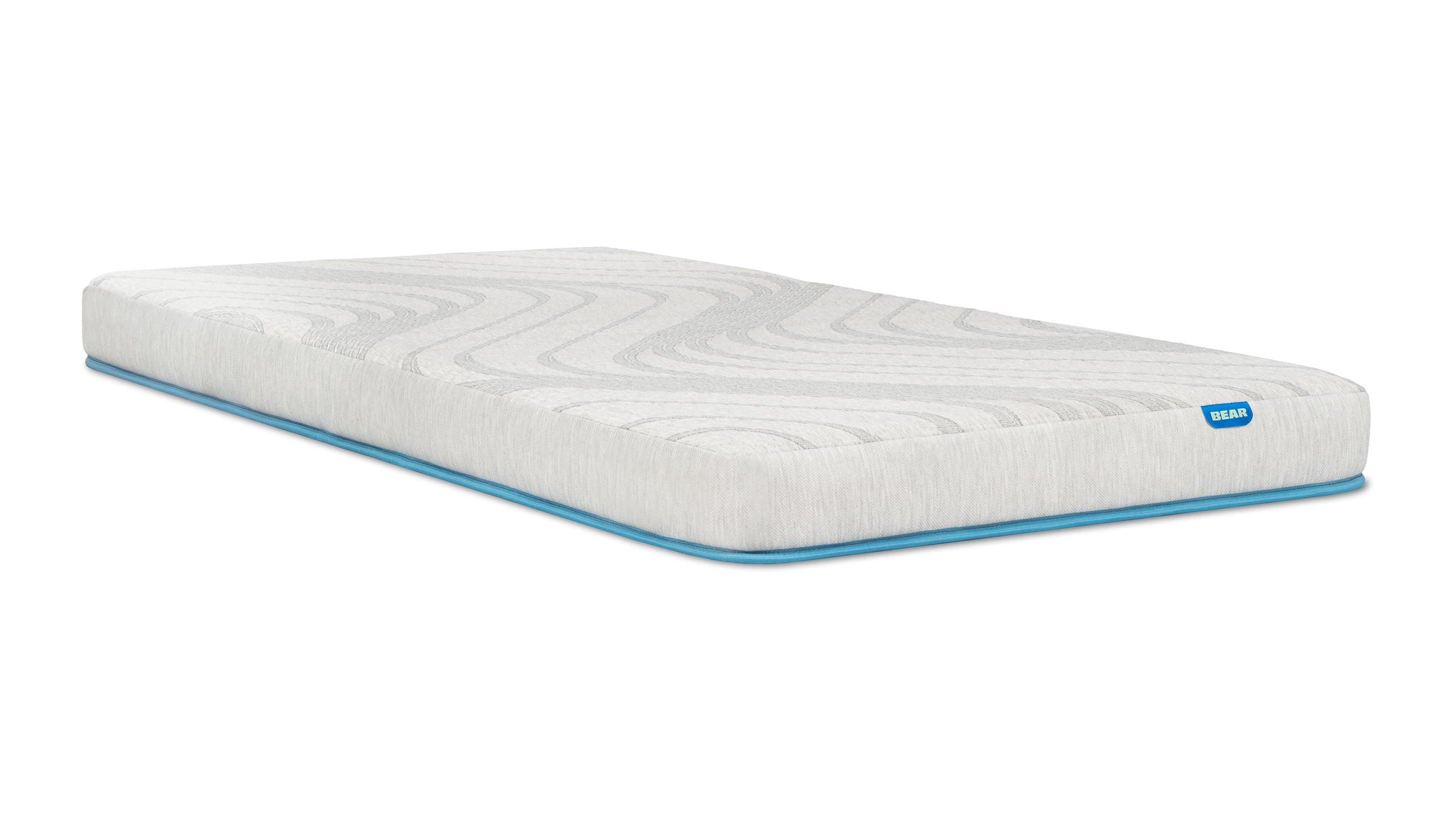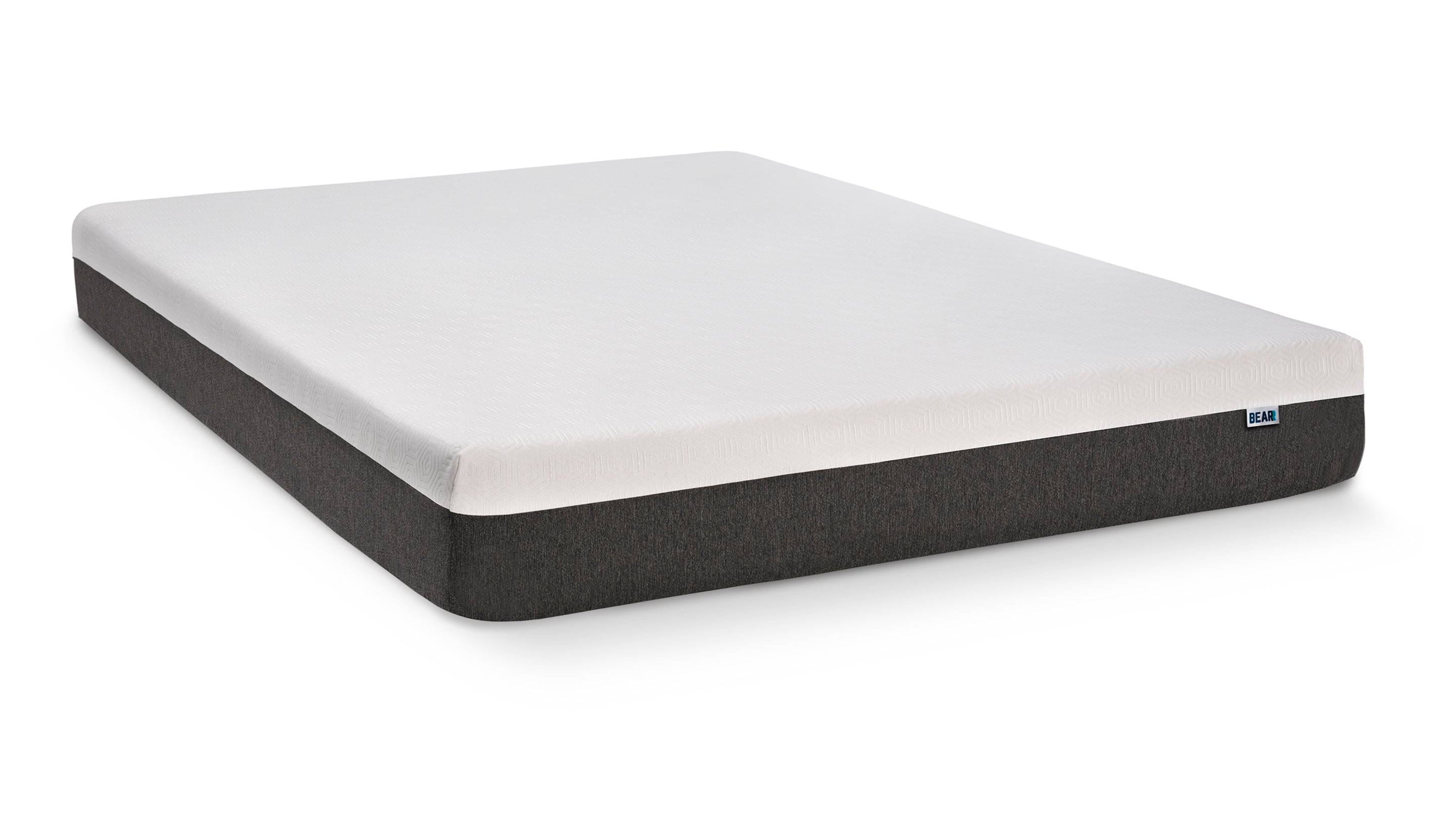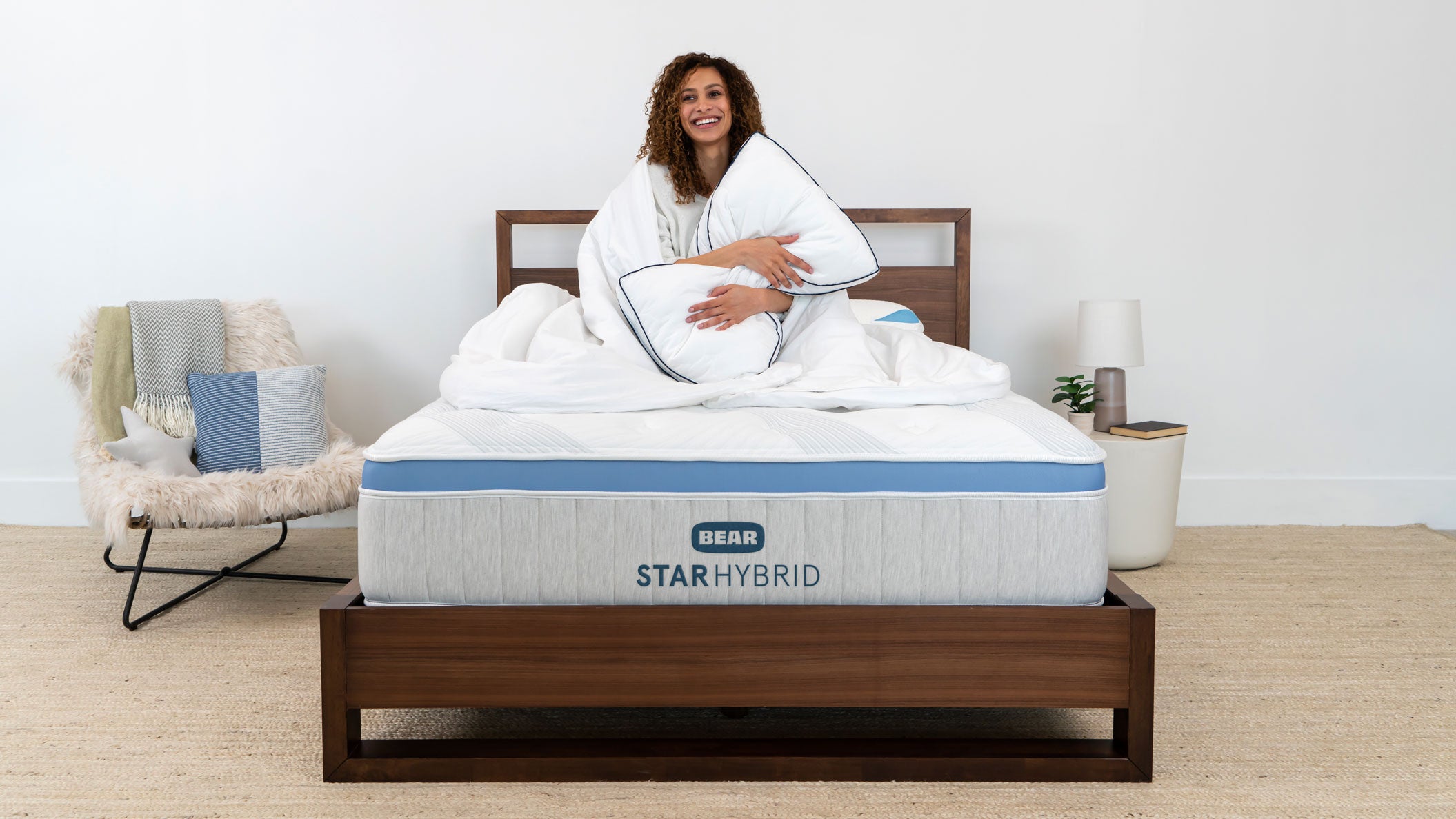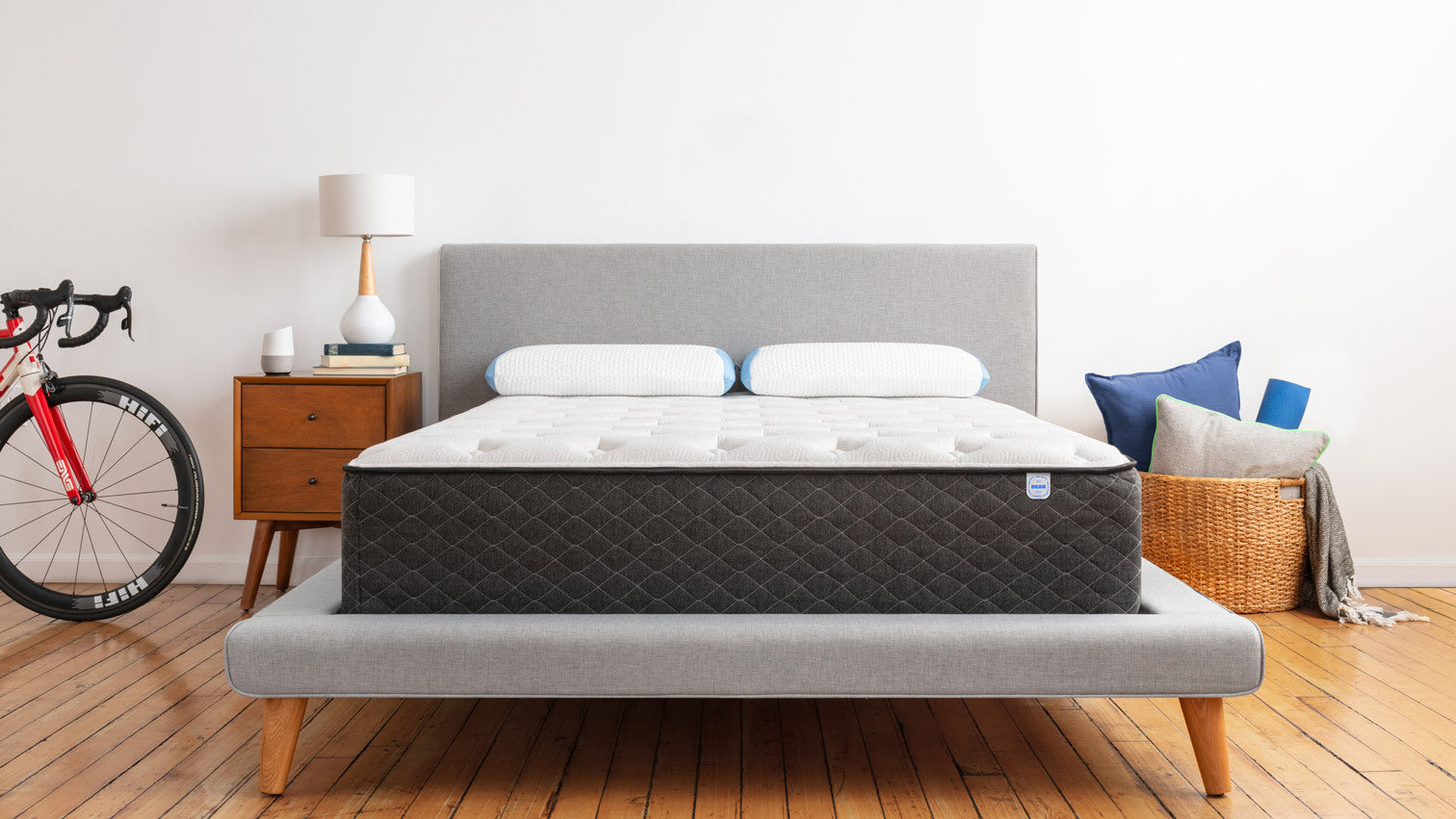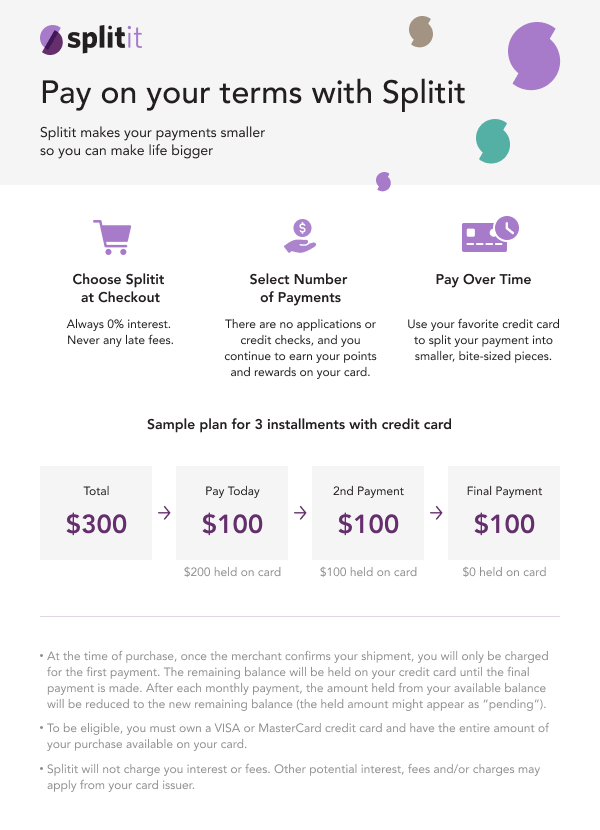
We here at Bear Mattress are super stoked about our new Brand Ambassador. If you’ve poked around the site or our Facebook at all, you’ve probably seen a few posts about professional Ironman Triathlete Sarah Piampiano, who just placed 7th in the world at the Ironman world championships in Kona.
We’ve teamed up with Sarah because she and our little company have one very important viewpoint in common: recovery is of the utmost importance. Sarah puts her body through a lot of stress. Like a lot. She trains harder in one day than most people do in a month. We sat down with Sarah and spoke about her training routine, her new endeavor The Habit Project, and what sleep and recovery mean to a pro athlete.
BEAR: From the first of installment of 2 Packs to a 6 Pack, I’ve learned that you competed in your first triathlon in 2009 and left your career in finance to become a pro triathlete. What were the motivating factors to make you say, “Hey, I want this to be my career. I want this to be my life?”
Sarah Piampiano: When I was growing up, my dream was to be a professional athlete. Participating and competing in sports was what brought me the most happiness. As I got older and went to college, my focus shifted and I gave up that dream – it was almost as if I forgot how happy be active and competing made me. I moved on, started a career and became quite inactive. When I became involved in triathlon and saw I had some potential, all of the emotions, and inspiration, and motivation and excitement that I had when I was younger came flooding back to me – competing made me feel alive, happy, motivated.
When I made the decision to make training and competing a career choice my philosophy was – “we have one life to live. Either I will succeed at this, or I will fail, but I want to give myself the opportunity to live out a dream”. And I strongly believe that. I think all too often many of us don’t take risks or bet on ourselves in taking a non-traditional path because of the risk of failure. I don’t want to live my life with many “what ifs”.
B: You weren’t always super healthy - can you tell me a little about when you realized you needed to get your health on track?
SP: To be honest I never was someone who focused much on what I was eating or my diet. I grew up in a family where we sat down together and ate breakfast and dinner together every day. We rarely ate out, and so I had a great platform of healthy and consistent eating habits. I’ve never struggled with weight, so even in college, I just ate whatever I wanted. But I don’t necessarily think I was eating right. For me – the “health” factors I struggled with when I was working in finance was more the lack of sleep (I was sleeping 1-2 hours per night), total lack of inactivity/fitness, partying too much and smoking. I started smoking as a way to get a break from the long work hours, and so even in the early days of smoking, I was keen to stop. Unfortunately where was nothing really motivating me to quit and the environment I was in wasn’t helping. I also had joined a gym to try to motivate myself to begin working out, but the money went to waste – I realize now that where I didn’t have a specific end goal I was working towards, working out simply to get in shape didn’t work for me.
Needless to say – It was a few years in the making that I wanted to and had attempted to make some changes, but nothing stuck or was lasting.

B: How did you start becoming a healthier, fitter person?
SP: In 2009 a friend of mine from college and I made a bet about who could beat the other in an Olympic distance triathlon race. I went in and participated in it with no training or preparation…and really no expectations. The experience turned out to be a life changing moment for me – I was excited and inspired and completely exhilarated by the experience – it motivated me to stop smoking on the spot, to start eating better, to get more sleep, to spend less time in the office – that one race was the catalyst for numerous lifestyle changes that helped me find better health and more balance (and ultimately a new career!!).
B: What is it about triathlons - rather than running, swimming or cycling individually - that you adore?
SP: For me – there are two things that make me love triathlon as much as I do: The first being that I believe it forces all of us (being the participants) to face our fears. I would wager that almost every person is scared of some aspect of the race – whether it is getting pulled under or punched on the swim, fear of crashing on your bike or the cross winds that can come with some race destinations, or simply getting through a run after swimming and biking. It is HARD and it forces every person – whether you are first or last – to really dig deep within yourself and challenge yourself emotionally as well as physically. And for me – I think that brings a huge sense of accomplishment and also helps build confidence. When you face a demon or a fear and you come out the other side – it proves just how tough you can be and how much you can accomplish
The second reason I love this sport is the sense of community it creates and how it levels the playing field. By that I mean – people from ALL aspects of life compete in triathlon – executives, billionaires, celebrities, elite athletes, teachers, students – we all lead different lifestyles, make different incomes, have different personalities. But on race day, we are all out there together, we are all faced with the same challenge, and we all really make ourselves vulnerable and expose our true character out on the race course. I find that to be a very powerful thing.
B: Can you tell me a little bit about the Habit Project and why you started it?
SP: Yes and thank you for asking! The Habit Project was inspired by my story of leading an overall unhealthy lifestyle, wanting to make changes, but lacking the inspiration to do so until one trigger – triathlon – created the motivation to make permanent and lasting changes. It takes the idea that everyone has bad habits that they would like to change – often across nutrition, fitness, and/or life balance – but often lack the motivation to take action. The Habit Project gives ideas and small challenges that may prove to be just the right trigger and inspiration. Our belief is that everyone has a trigger to inspire change, we just may not know what that trigger is! Then one small change can lead to bigger changes and an overall more positive lifestyle.
Ultimately I found the whole process of finding my “inspiration” for change to be really fascinating – wanting and trying to make changes for a long time, but ultimately failing, and then stumbling upon triathlon was the motivator I needed to quit smoking on the spot, begin working out, eating better and changing my lifestyle. My hope is that I can help others find their trigger.
B: How many triathlons have you competed in?
SP: To be honest, I’m not entirely sure! I would say I have probably done somewhere between 50-60 triathlons at this point. I know I have completed 15 Ironmans and I am guessing somewhere between 30-40 half-Ironman races
B: What awards have you won?
SP: As an amateur I placed 4th overall amateur and 1st American Amateur at the Ironman World Championships in 2011. I won Ironman 70.3 New Orleans in 2012 and 2015 as a professional, setting a new bike course and overall course record in 2015. I’ve have many podium finishes and this last October I placed 7th at the Ironman World Championships.
B: On any given training day, what’s your morning routine?
SP: Typically I am up at 4:30 in the morning. I get ready to head to the pool, I eat a rice cake with almond butter and drink a big glass of warm water. I spend 15 minutes on my vasa trainer (kind of like a swimming treadmill) before I head out, or I will go to the pool early and do a 15 minute run before practice starts.
After swim, I’ll eat a bar (usually a Clif Builder Bar) and head out for a run, anywhere from 60 minutes to 1 hour and 45 minutes (so 8-15 miles)
After the run I will have breakfast on the go (I bring cold soaked oats with me with berries, ground flax seed, hemp seeds, nuts and almond milk) and head to one of either physical therapy, a strength session with my strength coach, or to get body work done.
Then it is home for a bit of recovery before my afternoon training begins!
My afternoon sessions will vary – sometimes I will have a second swim, or a second run; sometimes I will have a 3 or 4 hour ride and a run off the bike. I typically head out around 1:30 or 2 so that I am back and can get some work done before dinner.
On average I train 5-8 hours per day.

B: PHEW. That's a lot! What about a before bed routine?
SP: I like to eat dinner about 2-2.5 hours before I head to bed. With long training days I need a lot of sleep so always try to be in bed by 8:30 and lights out by 9 so that I can get 7.5-8 hours of quality sleep. That means dinner is at 6 most nights and sometimes earlier! I tend to eat a bit later on the weekends as I don’t normally start training until 7:30 or 8 AM so can also go to bed later.
Dinner is usually a big salad with all organic veggies and 6 oz of protein – either fish or steak. I tend to eat most of my calories for breakfast and lunch and prefer a lighter dinner. I find it helps me sleep better.
After dinner I prep for the following day (getting my water bottles together with electrolyte drink, making my breakfast, post training recovery snacks, getting my training gear together, etc), and then will get in bed and often work on catching up on e-mails or watching an episode of my favorite show (The Blacklist).
B: What do you do to recover?
SP: Recovery is KING! Truly – recovery is such an important part of my training routine. My coach expects performance in each session, so having for the physical and mental capacity to complete each workout is key. For me I do a ton of things to help my recovery:
- I try to take a nap every day – usually only 20-30 minutes max so I don’t mess up my sleep at night
- I wear compression gear when I am not training – socks, tights, etc
- I use recovery gagets like the Marc Pro and NormaTec recovery boots
- I take hot baths with Epsom salt 3-4 times per week
- When I am not training I always have my feet elevated
- I get a massage 1-2 times per week
- I drink tons of water – I notice a huge difference in my recovery between when I am hydrated vs not
- I make sleep paramount – 7.5-8 hours at a minimum.
B: How important is sleep to you?
SP: I cannot emphasize enough how important sleep is to me and allowing me to do what I do and thrive every day. Sleep is one of the best recovery tools. It is also something I feel people don’t put enough emphasis on. When I was still working a corporate job and trying to train for triathlon I often for forgo sleep in favor of getting a late night workout in. I was often sick or injured and I now am a big believer that inadequate sleep was a big reason for that. If I could do it all over again I would train fewer hours, sleep more and invest in a high quality mattress – it is a game changer.
B: How has the Bear Mattress impacted both your sleeping life and waking life?
SP: I feel that often people don’t want to spend the money to invest in a good mattress, but I think that is a huge mistake – getting great quality sleep can impact you weight, you appetite, your mood, your cognitive functions, your happiness, your ability to perform – the impact of good sleep vs poor and inadequate sleep is huge. I actually did invest in a latex mattress prior to getting my Bear Mattress and I can honestly say, my sleep quality and comfort I dramatically higher and better with my Bear Mattress – I really love it. For me – I take a lot of confidence in the fact that I will get a great night’s rest and that I will wake up ready to perform at my best.
B: If you could give just a snippet of advice to your average Joe looking to better his life, what would it be?
SP: I would say to make one small change at a time. Don’t create goals that will set you up for failure. Want to lose weight? Commit yourself to bringing your lunch to work 3 days a week, or to only eating dessert 2x per week, or to cutting out your afternoon snack. Don’t do a total diet overhaul – just take it one step at a time. Want to get in better shape? How about committing yourself to working out 2x per week and taking a talk on your lunch break. Set goals that you can succeed at – because success will create motivation and will lend itself to setting new goals and creating more success. Just take one small step at a time ☺


